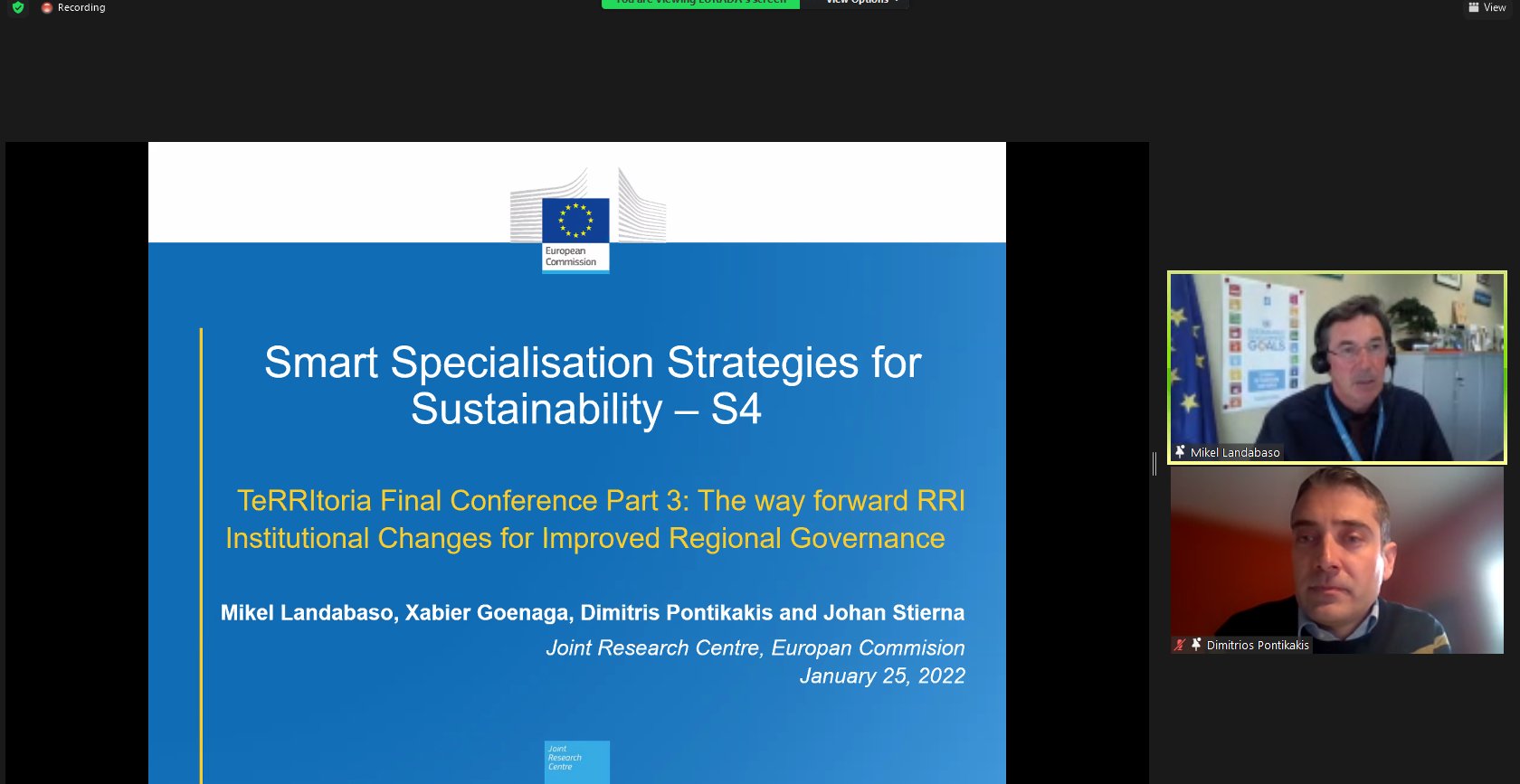Emilia Romagna: inserting RRI in RIS3. An update from Bologna
The Emilia Romagna region and ART-ER (its Regional Development Agency) have decided to focus primarily on two RRI dimension in formulating their regional Smart Specialisation Strategy (S3) for 2021-2027. By using public engagement and science education and working on the inclusive governance dimension, the Emilia Romagna region and ART-ER expect to develop a methodology for including RRI dimensions in their regional S3. Public engagement will allow ART-ER to engage actors other than clusters, universities, and industry in the process of defining the regional priorities and governance. In this framework, ART-ER will co-design and test a participatory process which allows the opening up of S3 phases (design to monitor) to stakeholders and organisations from the civil society and non-profit sector. Science education, instead, will provide new frameworks and tools to involve more and more technical schools, formal and non-formal training institutions, and organisations dealing with citizen science to enhance training policies within the S3.
The Transformative Experiment has 5 objectives:
- Encourage public engagement in public-private research projects;
- Establish an inclusive and quadruple Helix S3 governance model;
- Define programmes and measure dealing with placed-based and challenged-based innovation;
- Monitor and assesses social impacts of Research and Innovation (within S3 monitoring system) together with the University of Bologna and Giulia Bubbolini from CISE;
- Define a new social innovation policy approach to R&I.
Since the project started two years ago, some concrete results have already been achieved, such as a definition of RRI’s potential opportunities among regional research and innovation organisations, the creation of several focus groups with local social innovators, and the introduction of public engagement and science education as guiding principles of the next S3 strategy, allowing the region to draft its first RRI policy guidelines. The best result achieved so far, of which ART-ER is extremely proud, is the success in setting the basis for a challenged-based social innovation approach within the next Regional Operative Programs (ROPs). Social innovation will be introduced in the next programming period of the Emilia Romagna region through several bottom-up challenges.
Next steps
In the coming months, ART-ER and Emilia Romagna region will start the implementation phase of the experiment. An open process to discuss the RRI guidelines to frame new opportunities for collaboration and public engagement in the next programming period will be launched soon. This consultation will be done through online workshops to gather contributions to the overall S3 strategy. In order to move from paper to action, it is necessary to collect guidelines which will be used to design an experimental policy measure. In addition, support to regional managing authorities for defining social innovation framework within the next ROPs will be guaranteed. Moreover, ART-ER points out how important it is to integrate the Just Transition and Mission-oriented framework in the discussion on the challenge-based social innovation approach. By the end of February, ART-ER will publish a position paper on the challenge-based social innovation approach. Lastly, the implementation phase of the experiment will help the Emilia Romagna region’s S3 experts with a better definition and monitoring measures to measure the sustainable impact of R&I projects.
ART-ER is expected to organise 3 or 4 workshops in the next month in which they would like to involve local and regional stakeholders such social innovators, the third sector and civil society organisations (including social cooperatives), organisation dealing with non-formal education and citizen science, corporate social responsibility territorial laboratories, and clusters.
At the end of this process, a change in public engagement is expected. By implementing the TeRRItoria Transformative Experiment, society will be highly influenced. The ultimate goal is to be able to modify the rules of participation to facilitate the participation of the regional social innovators.





